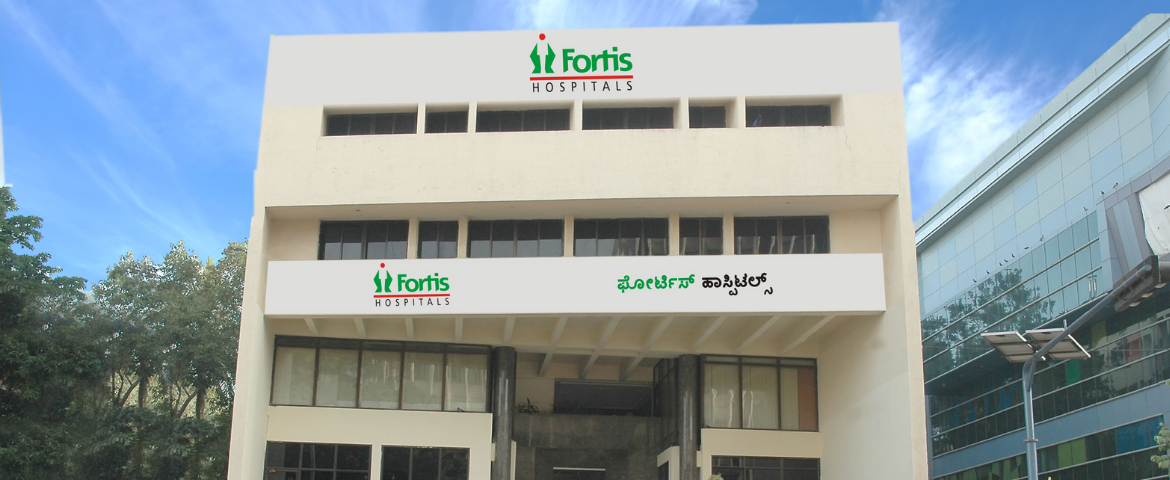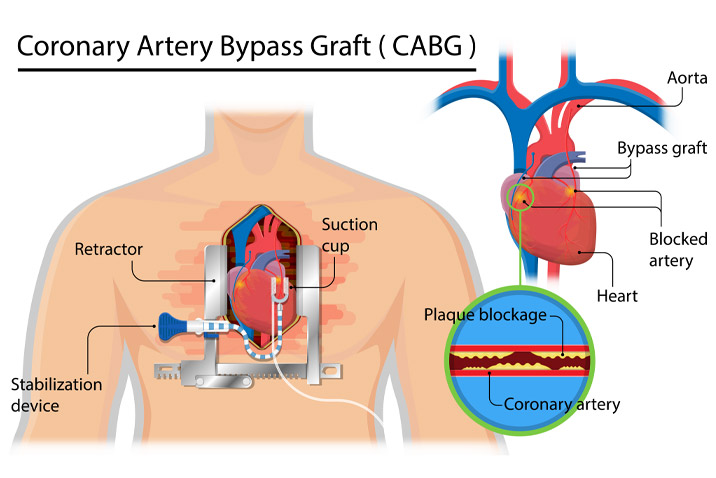CABG - Redo cost in India
The cost of CABG - Redo in India ranges
from USD 3900 to USD 9000
CABG - Redo
Redo coronary artery bypass grafting may be the most technically difficult procedure in cardiac surgery. The coronary artery disease has progressed, and coronary goals may be poor. Furthermore, the patients are generally older and sicker than those undergoing basic CABG. Redo CABG procedures are becoming less common in comparison to total CABG surgeries. Perioperative mortality with repeat CABG has been reported to be up to three times that of main CABG, but this risk decreases with experience. Redo CABG is a complex operation that requires adequate surgical methods to achieve successful results.
Procedure Description:
CABG - Redo
Redo coronary artery bypass grafting may be the most technically difficult procedure in cardiac surgery. The coronary artery disease has progressed, and coronary goals may be poor. Furthermore, the patients are generally older and sicker than those undergoing basic CABG. Redo CABG procedures are becoming less common in comparison to total CABG surgeries. Perioperative mortality with repeat CABG has been reported to be up to three times that of main CABG, but this risk decreases with experience. Redo CABG is a complex operation that requires adequate surgical methods to achieve successful results.
Disease Overview:
Coronary arteries are the blood channels that provide oxygen-rich blood to your heart muscle, allowing it to continue to beat. The coronary arteries run parallel to the heart muscle. Coronary artery disease is a narrowing or blockage of your coronary arteries caused by plaque accumulation. Coronary artery disease, also known as coronary heart disease, ischemic heart disease, and heart disease, is a kind of coronary artery disease.
Disease Signs and Symptoms:
You may not experience symptoms at first, hence, you may not realise you have coronary artery disease. Plaque builds up in your arteries over time, from years to decades. However, when your arteries constrict, you may have moderate symptoms, indicating that your heart is working harder to transport oxygen-rich blood to your body. The most typical symptoms are chest discomfort or shortness of breath, which can occur even when doing nothing but going up stairs.
Disease Causes:
Atherosclerosis is the cause of coronary artery disease. The accumulation of plaque inside your arteries is known as atherosclerosis. Cholesterol, fatty compounds, waste materials, calcium, and the clotting ingredient fibrin make up plaque. As plaque builds up on the insides of your arteries, they constrict and harden. Plaque can block or damage your arteries, causing blood flow to your heart muscle to be restricted or stopped. Your heart can't obtain the oxygen and nutrients it needs to function correctly if it doesn't get enough blood. Ischemia is the medical term for this illness. Chest discomfort or pain might result from a lack of blood flow to your heart muscle (called angina). It also raises your chances of having a heart attack.
You're more likely to get coronary artery disease if you:
- Have a high level of cholesterol (particularly high LDL "bad" cholesterol and low HDL "good" cholesterol).
- Have a high blood pressure condition.
- Heart disease runs in the family.
- diabetes.
- Smoking
- post-menopausal lady or a male over 45 years old
- obesity
- Physically Inactive
Disease Diagnosis:
Your cardiologist will first question you about your symptoms, assess your medical history, evaluate your risk factors, and do a physical exam, unless your condition is an emergency (you're experiencing a heart attack or stroke).
A variety of diagnostic tests are available, including:
EKGs (electrocardiograms) are tests that record the electrical activity of the heart. Can detect heart attacks, ischemia, and irregular heartbeats.
Exercise stress tests: A treadmill test to see how well your heart works while it's working the hardest. Angina and coronary occlusions can be detected.
Pharmacologic stress test: Rather than employing exercise to evaluate your heart when it is at its most active, medication is given to raise your heart rate and simulate activity. Angina and coronary occlusions can be detected using this test.
Coronary calcium scan: This test determines how much calcium is present in the walls of your coronary arteries, which might indicate atherosclerosis.
Echocardiogram is a test that uses sound waves to determine how well your heart's architecture and general function are operating.
Blood test: Triglycerides, cholesterol, lipoprotein, C-reactive protein, glucose, HbA1c (a marker of diabetes management), and other blood tests are ordered for variables that impact arteries.
Nuclear imaging is a test that uses a radioactive tracer to create pictures of the heart.
Cardiac catheterization is a procedure in which tiny tubes are inserted into the heart's blood arteries to assess heart function, including the existence of coronary artery disease.
Country wise cost comparison for CABG - Redo:
| Country | Cost |
|---|---|
| India | $4410 |
| Singapore | $61418 |
Treatment and Cost
28
Total Days
In Country
- 7 Day in Hospital
- 2 No. Travelers
- 21 Days Outside Hospital
Treatment cost starts from
$4900
Popular Hospital & Clinic
Featured Hospital
0 Hospitals
Related Packages
More Related Information
Some of the top rated hospitals are:
- Singapore
- Mount Elizabeth Hospital, Singapore
- National University Hospital, Singapore
- Singapore General Hospital, Singapore
- Changi General Hospital, Singapore
- Gleneagles Hospital, Singapore
- Johns Hopkins Singapore International Medical Centre, Singapore
- Thomson Medical Centre, Singapore
- Mount Alvernia Hospital, Singapore
- Novena Medical Centre, Singapore
- Alexandra Hospital, Singapore
- United Kingdom
- Cancer Centre London
- The Highgate Hospital
- The Holly Hospital
- The Parkside Hospital
- Circle Reading Hospital
- Shirley Oaks Hospital
- St Edmunds Hospital
- The London Clinic
- Woodlands Hospital
- The Christie NHS Foundation Trust
- Royal Marsden Hospital
- Queen Elizabeth Hospital Birmingham
- London Bridge Hospital, HCA Healthcare
- Saudi Arabia




